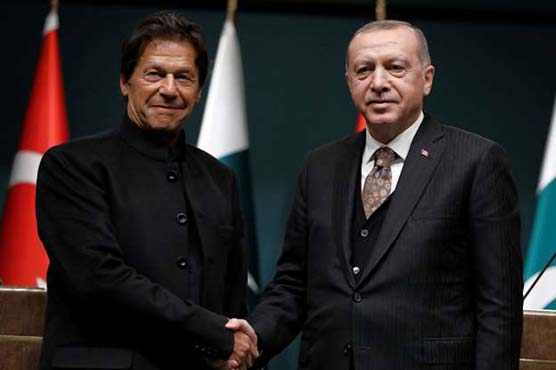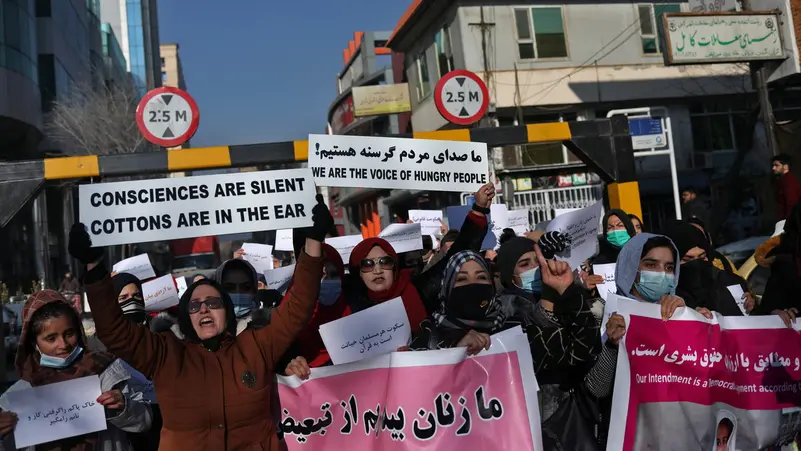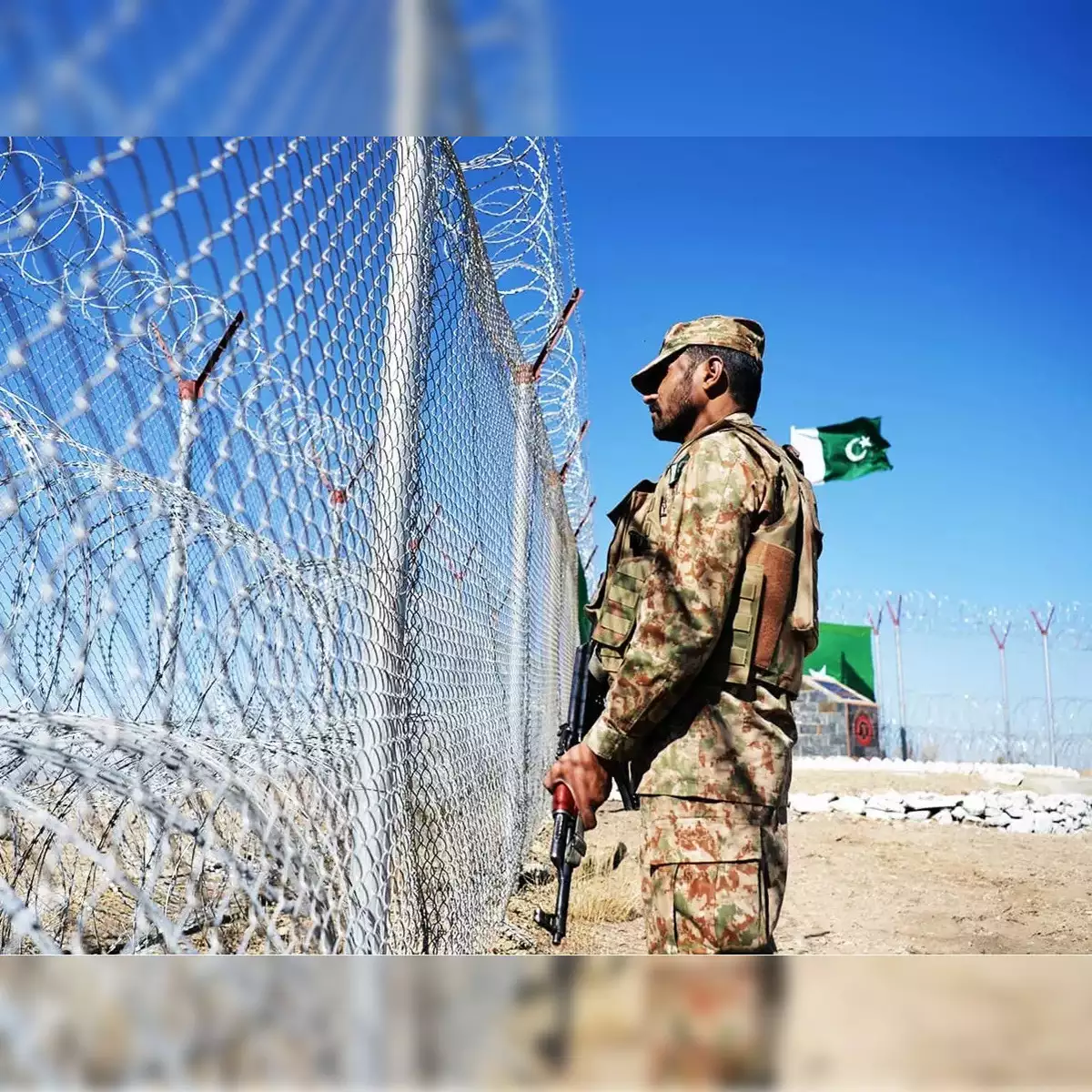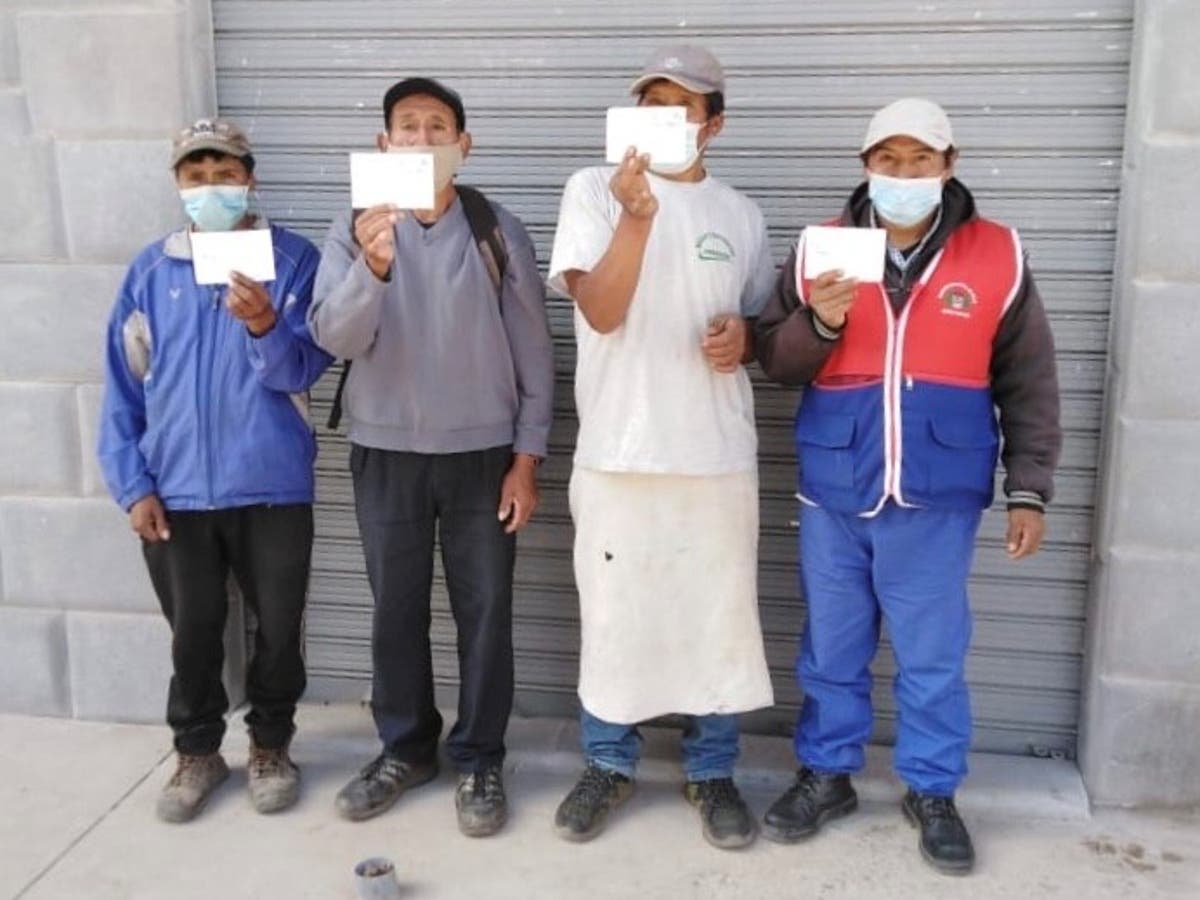The US Department of the Treasury designated five Turkey-based individuals on September 16, 2021, for providing a range of financial and travel facilitation services to Al- Qaeda. The latest designations sanctioned three Turkish nationals Soner Gurleyen, an al- Qaeda extremist and financial facilitator who is charged of having provided another al Qaeda violent extremist with assistance in preparation for the latter’s travel; Nurettin Muslihan, who is accused of contact with al Qaeda’s senior leadership in Syria, seeking to directly communicate with now-deceased leader Abdullah Muhammad Rajab Abd al-Rahman, also known as Abu Khayr al-Masrim and Cebrail Guzel, who supported Nurettin Muslihan to facilitate the network’s relationship with Abdullah Muhammad Rajab Abd al-Rahman.
There were two Turkey based Egyptian nationals Muhammad Nasr al-Din al-Ghazlani and Majdi Muhammad Salim who were also sanctioned on September 16. Muhammad Nasr al-Din al- Ghazlani, supported the Al Qaeda with transfers of cash, including providing money to the families of imprisoned al Qaeda members. Majdi Muhammad Salim, on the other hand was the primary facilitators of a range of al Qaeda activities in Turkey, including acting as a financial courier within the al Qaeda network.
The most senior among the five who were covered under latest US sanctions is Majdi Muhammad Salim, who is the former emir of the Egyptian Islamic Jihad, a terrorist group once headed by al-Qaeda leader Ayman al-Zawahiri. Both Mohammed Nasr al-Din al-Gazlani and Majdi Muhammed Salim, were linked to the “Muslim Brotherhood” organization. These two settled down in Turkey on the grounds of the 2013 military coup in Egypt. The names of al-Gazlani and Muhammed Salim were included in the category of ‘opponents’ that Egypt was uncomfortable with being in Turkey within the scope of Turkey’s efforts to re-establish relations with the current Egyptian government, which it has criticized in the past for being a “putschist”.
The citizens of the Republic of Turkey, which the US Department of Finance announced that they provided financial support to the terrorist organization Al Qaeda, have assumed roles in civil society structures in connection with different associations. Soner Gurlenen, has been accused of using humanitarian aid activities for camouflage purposes in the past and was the chairman of the charity organization Yesil Sancak Dernegi (Green Banner Association), which had a legal structure in Turkey until a few months ago. Soner Gurlenen had also been arrested in Niger in December 2019 for allegedly engaging in al-Qaeda and ISIS-related activities under the guise of humanitarian aid work. Gurlenmeye, another citizen of the Republic of Turkey, was present in African countries on the grounds of the work of the Leading Generation International of Turkish Humanitarian Relief Foundation (IHH) during his arrest in Niger. Gurlenen also entered and exited Syria within the scope of this association. Nurettin Muslihan, has been the subject of news in Turkey in the past in connection with ISIS. The people with the surname Muslihan and alleged affiliations with Nurettin Muslihan seem to be among the writers of the ‘Tawhid’ magazine with the allegation that they are linked to ISIS and Al-Qaeda in different investigation processes in Turkey.
The sanctioned Turkish nationals are junior operatives, two of whom, Guzel and Muslihan, worked with one of the former deputy emirs of Zawahiri. In July 2015, Turkish Police had intelligence that Muslihan ordered his militant followers to arm themselves and carry out shooting practice on the outskirts of Istanbul and warned of imminent terror attacks. Still, Turkish authorities failed to prevent jihadist attacks in the city which happened later. Those attacks came a day after the United States sent fighter jets to Turkey to strike the Islamic State. Irfan Fidan, an Istanbul deputy prosecutor whom Turkish President Recep Tayyip Erdogan later appointed as a constitutional court judge, quashed an investigation into Muslihan and al-Qaeda in March 2015 and discontinued the monitoring and surveillance of the suspects.
Earlier, the United States on May 17, 2021, had sanctioned three people and one company in Turkey, for their key roles in the terror group ISIS’s illicit financial network. US sanctioned Alaa Khanfurah who stands accused of using a money services company he established in Turkey to transfer thousands of dollars to top ISIS leaders and operatives in Syria in 2017 and 2019; Idris al-Fay, a former al Qaeda member and ISIS judicial officer, was sanctioned for using Turkey-based money services firm Al-Fay Company to funnel donations to ISIS members. Some ISIS members, Idris al-Fay contacted, were operating out of the al Hol camp, a Kurdish-run displacement camps for relatives of ISIS militants in northeast Syria; and Al-Fay’s brother Ibrahim al-Fay, accused of controlling the Al-Fay Company in his brother’s absence, and directing international funds towards ISIS elements in Iraq and Syria.
Recently, Turkish private military contractor Sadat, a paramilitary unit loyal to the Islamist president of Turkey, has advocated the idea of Turkey supporting and helping the Taliban. SADAT has called Taliban as a ‘resistance movement’, that established a Sharia state in Afghanistan. On September 13, 2021 Ali Cosar, a retired colonel and board member of Sadat, advocated that Turkey should help the new Afghanistan run by the Taliban in cooperation with Pakistan, Qatar and Malaysia. Dismissing the description that the Taliban is a terrorist organization, Cosar said, the Taliban are members of a resistance movement that fought against colonial America for 20 years to take over the government and establish a state that practices Sharia. He pointed out that the Selchuk and Ottoman Turks had also ruled under Sharia when they governed states in the past. Recalling that Sadat has been advocating the Islamic Union, with a joint military force, Cosar disclosed that, the Association of Justice Defenders Strategic Studies Center (ASSAM), an organization affiliated with Sadat, was about to complete a roadmap for realizing the Islamic Union.
Cosar is not the only one in Sadat and its affiliate ASSAM to publicly declare that Turkey should work closely with the Taliban. Ersan Ergur, vice president of ASSAM, wrote on June 28, 2021 that peace and tranquillity would come to Afghanistan after NATO and other invading forces withdrew. However, he maintained that the only necessary and sufficient condition for this to happen was the continuation of Turkey’s presence in Afghanistan in terms of military power. Ergur further maintained that Turkey would lead the establishment of a regional Islamic pact called the Near East Regional Islamic Federation by bringing Afghanistan and other countries together as envisioned in ASSAM’s earlier proposal for the Confederation of Islamic Countries. During the annual Islamic Union Congress organized by ASSAM in December 2020, SADAT’s President Adnan Tanriverdi had presented the defence structure of the ‘ASRICA (Asia and Africa) Islamic Countries Union’. The main goal of Asrica, which comprised of 61 countries, was envisaged as ensuring that the Islamic world will again be viewed by history as a supreme power. Istanbul will be the capital of the union.
President Erdogan has also made clear that he has nothing against the Taliban and in fact shares the Taliban’s ideology. Speaking on July 20, 2021 Erdogan said his government would negotiate with the Taliban, which he said should feel comfortable engaging in dialogue with Turkey, as opposed to the Americans. The Taliban also expressed pleasure with what Erdogan said and announced it would view Turkey as an ally rather than an enemy after taking over Kabul and cementing control of the entire country.
Lately, it appeared that Turkey has changed its strategy for combating the Islamic State (ISIS). In June 2021, Turkey detained 307 ISIS suspects across the country. Another 25 were reportedly detained in early July 2021. At the same time, it is not clear how many ISIS cadres were arrested, remain in detention, or have since been released. The majority of those detained are Iraqis and some Syrians, most of whom were apparently deported. Till lately, the Turkish security forces were merely monitoring ISIS members, as they were not deemed a threat, regardless of their past. But this is now beginning to change since the group’s
growing activity in Iraq and Syria has reignited fears it could once again carry out attacks inside Turkey.
Turkish operations against ISIS inside Turkey and in neighboring Syria have however failed to end criticism of its overall strategy, which is still riddled with gaping holes. The increasing number of domestic raids against ISIS has often been criticized as superficial, negligent and lenient. It could be argued that Turkey might have deliberately waited to make its move “to reach wider rings through intelligence”. However, there is certainly a state of negligence in the Turkish security forces especially Turkish intelligence, police, and security forces lack coordination, with the latter hesitant to act against ISIS cells unless they receive tips or complaints. The Turkish government does not view ISIS as a primary threat to the country. An Islamic State (ISIS) judge, a Syrian national Jamal Abdul Rahman Alwi, who had made the ruling of ‘executing two Turkish soldiers by burning’ in northern Syria in December 2016, was, till lately, freely living in Turkey’s south-eastern city of Gaziantep and running a pet shop. Alwi had crossed into Turkey’s Kilis with his wife, children and grandchildren.
Alwi who had earlier been arrested being “a senior official of ISIS”, following a tip on June 18, 2020 in Gaziantep, was later released following a Turkish court decision on March 02, 2021, due to lack of “collection of all evidence, lack of probability of spoiling evidence, and the defendant’s family and personal excuses.” Sefter Tas, a Turkish conscript, and Fethi Sahin, a Turkish gendarmerie intelligence operative, who had infiltrated the Islamic State, were burned alive in 2016, upon the ruling of Alwi. Despite the gravity of the crimes, the Gaziantep Seventh Heavy Penal Court released Alwi from prison on March 02, 2021, after a mere nine months on the grounds that he had “no flight risk” and that no obstruction of evidence was possible. Stunningly, one of the reasons for his release was cited as the jihadist’s “personal excuse.” Although a ban on traveling abroad was imposed on Alwi, it was lifted on June 26, 2021.
On September 17, 2021, Turkish investigative journalist Ismail Saymaz reported that Alwi had been living freely in Gaziantep and even selling birds in a marketplace. After facing backlash, the Turkish courts issued orders for the arrest of ISIS militant. This is not the first scandal involving the Turkish judiciary and ISIS. Numerous indictments and reports have shown that ISIS militants roamed freely in Turkey and planned attacks despite being under surveillance.
The designation by the US Department of the Treasury of five al-Qaeda facilitators in Turkey on September 16 is the seventh such designation targeting a jihadist network in Turkey. Earlier US sanctions against individuals living in Turkey had been issued in April, September, and November of 2019 and January, May, and August of 2021. This latest designation exposes the extent to which radical Islamists thrive in the permission environment Turkey has cultivated. In addition to al-Qaeda, previous US sanctions have targeted illicit financial networks linked to the Islamic State, Hamas, Iran’s Islamic Revolutionary Guard Corps, and the Egyptian group Harakat Sawa’d Misr in Turkey. These links show the extent to which Turkey has become what in 2014 was referred to as the “jihadi highway.”
The latest designation coupled with its recent predecessors demonstrates US’s heightened vigilance against jihadist networks operating within the borders of an increasingly adversarial NATO member state. However, Secretary of State Antony Blinken’s press statement about September 16, 2021, Treasury designations, sends mixed signals. It reflects the Biden administration’s softened approach to the Erdogan government since the Turkish president’s June offer to guard and run the Kabul international airport following the withdrawal of US forces from Afghanistan. Blinken said that the United States would continue to work closely with its partners and allies, including Turkey, in identifying, exposing, and disrupting al- Qa’ida’s financial support networks. Such a statement hides the Erdogan government’s
negligence toward radical Islamist groups and complicity in offering them a permissive environment to exploit. While the Biden administration is correct to designate and impose sanctions against Turkey-based jihadists, US should not whitewash the Erdogan government’s culpability in transforming a secular NATO member state into a fertile breeding ground for myriad jihadist groups. Turkey’s foray in Afghanistan adds to the Jihadi challenge to the world. Even if Turkey and its allies Qatar and Pakistan have a hard time selling the Taliban’s renewed rule as a success, they will certainly unleash a new wave of jihadist enthusiasts across the globe. The renewed vigour is already being felt in the Turkish streets, where some were cheering the Taliban’s victory as well the Islamist militant rule in Syria’s Idlib region. Turkey should be judged on its past commitments to fight against the threats of ISIS and Al Qaeda. The fact that Turkey has provided and still provides a nurturing environment of these jihadists ‘within’ and ‘without’, should be an alarm enough for the world.









